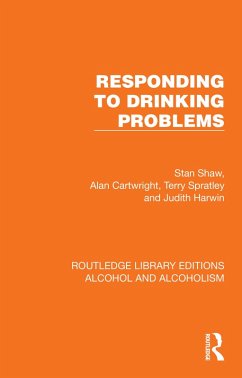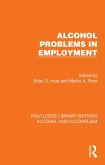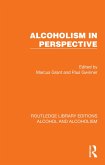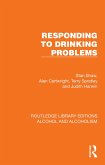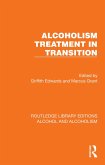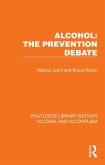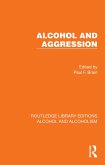This perspective is then linked to the need for an integrated response from both medical and social services, with a particular accent on the need for a community response. By focusing on the relationship between helper and helped a solution is sought to the question which has troubled the field for many years: why are agents like family doctors and social workers so inadequate in recognising and responding to people with drinking problems?
The crucial aspects within the therapeutic relationship are pinpointed and experimental studies are described which show how training, casework, supervision and the redeployment of expertise can help improve recognition rates and responses to individual drinkers. This book thus expresses the need for major changes both in our attitudes and understanding of people with drinking problems and the difficulties of agents who try to help them. It should still be of historical interest to social scientists and those involved in helping people with drinking problems.
Dieser Download kann aus rechtlichen Gründen nur mit Rechnungsadresse in A, B, BG, CY, CZ, D, DK, EW, E, FIN, F, GR, HR, H, IRL, I, LT, L, LR, M, NL, PL, P, R, S, SLO, SK ausgeliefert werden.

